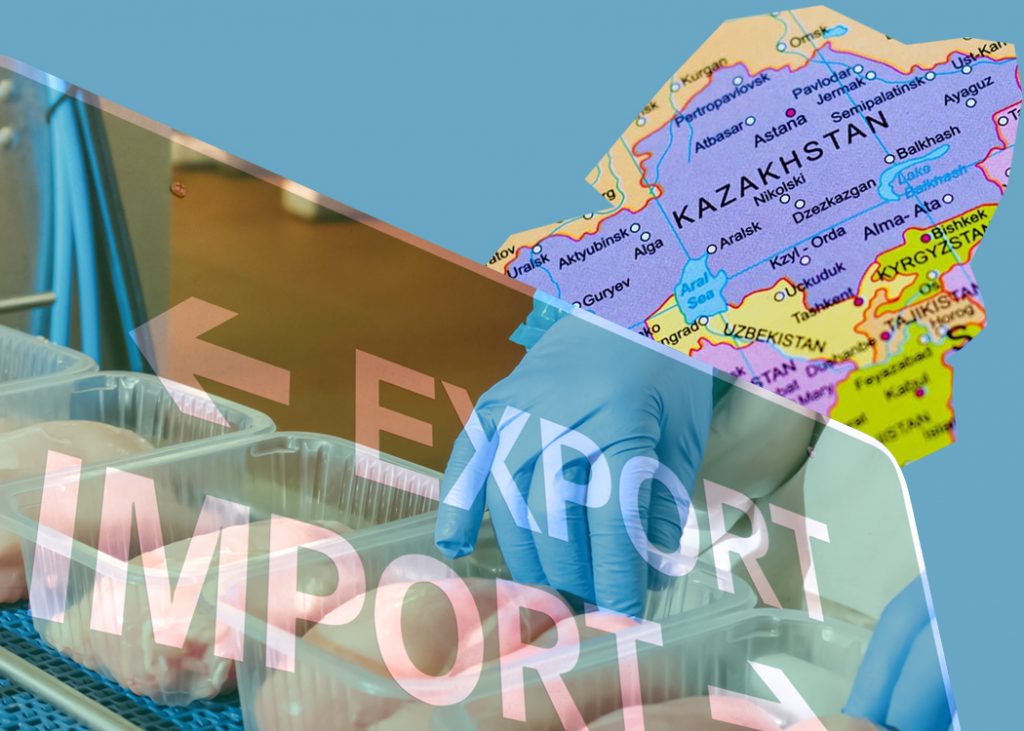
AVN News Desk
After months of deliberation, Russian authorities have officially banned the import and transit of US poultry, a move that will significantly impact American poultry exports to Kazakhstan, which previously relied on Russian transit routes.
The move has been welcomed by poultry farmers of Kazakhstan for its positive impact on domestic producers who will benefit from the lack of competition in the local market.
The Russian veterinary watchdog, Rosselkhoznadzor, announced the ban, citing multiple outbreaks of bird flu across several US states as the primary reason, saying that it is not alone in restricting US poultry imports.
“The Hong Kong Centre for Food Safety has also suspended imports of poultry and poultry products, including eggs, from the United States due to outbreaks of highly pathogenic avian influenza in several American states,” Rosselkhoznadzor says. “This decision follows reports from the US Department of Agriculture about bird flu cases on commercial poultry farms in Minnesota, Iowa, and North Carolina.”
Meanwhile, Kazakhstan’s poultry farmers have expressed strong support for the Russian ban, viewing it as a vital step in protecting the domestic market from foreign competition.
“We fully support the Russian Federation in restricting the import of poultry products from the United States,” said Ruslan Sharipov, President of the Union of Poultry Farmers of Kazakhstan. He highlighted ongoing concerns about the impact of imported poultry on the local market. “Large volumes of poultry meat, particularly American chicken legs sold at dumping prices, have been flooding our market,” he added.
Despite backing the ban, there are concerns that other countries, particularly Russia, may step in to fill the void left by US imports. To counter this, Sharipov is advocating for a reduction in Kazakhstan’s tariff quotas for poultry imports.
“We have consistently raised the issue of reducing tariff quotas with the authorities,” Sharipov noted. The current import quota stands at 140,000 tonnes per year, but he proposes lowering this to 50,000 tonnes to better protect local producers and vulnerable populations.
He pointed out that Kazakhstan’s poultry industry struggles to compete with imports due to a lack of domestic production of essential inputs such as feed additives, veterinary pharmaceuticals, and parent flocks.
Looking ahead, Kazakhstan is on track to meet its domestic poultry demand, estimated at approximately 460,000 tonnes in 2024. Poultry production is expected to increase to 400,000 tonnes this year, up from 330,000 tonnes in 2023. Several major projects are underway to boost production further, with a target output of 744,000 tonnes by 2027.
Sharipov’s vision is to ensure Kazakhstan achieves self-sufficiency in poultry production while maintaining a balance that supports both local farmers and the needs of the population.





